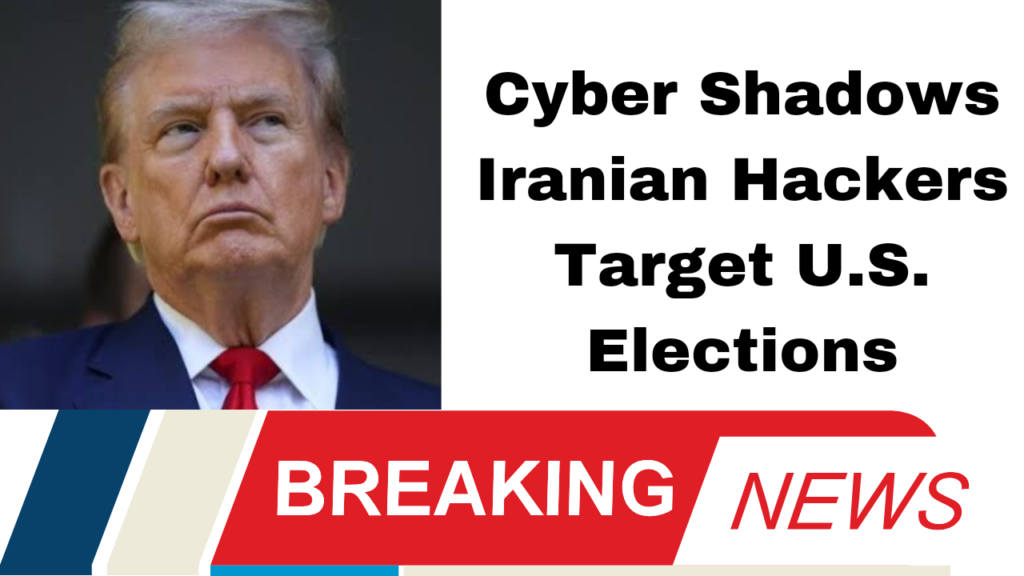Federal Officials Reveal Cyber Intrusion Amid Ongoing Election Interference Concerns
Iranian hackers have reportedly sent stolen information from Donald Trump’s presidential campaign to individuals affiliated with Joe Biden’s campaign over the summer, according to federal law enforcement officials. The Office of the Director of National Intelligence, the FBI, and the Cybersecurity and Infrastructure Security Agency released a joint statement detailing this incident.
During late June and early July, Iranian cyber actors sent unsolicited emails containing excerpts from non-public material taken from Trump’s campaign to several people linked to Biden’s campaign. The officials emphasized that there is no evidence that Biden’s team responded to these emails.
Morgan Finkelstein, a spokesperson for Vice President Kamala Harris’ campaign, confirmed that a few individuals were targeted on their personal emails but stated that no materials were sent directly to the campaign. “We have cooperated with law enforcement authorities since learning about the intended victims of this foreign influence operation,” Finkelstein said. “We condemn any efforts by foreign actors to interfere in U.S. elections.”
In response, the Trump campaign called on Biden and Harris to clarify whether they utilized the hacked material, claiming this incident exemplifies Iranian interference aimed at aiding the Democratic ticket. At a rally in New York, Trump alleged that Biden was involved in the hacking, although no evidence supports this claim.
U.S. officials and cybersecurity experts have previously noted unsuccessful attempts by Iranian hackers to breach the Biden-Harris campaign. This latest activity seems to be another attempt by Iranian hackers to disseminate stolen information.
Iran, along with Russia, has emerged as a prominent foreign actor trying to influence the upcoming 2024 U.S. presidential election. Their tactics mirror the “hack-and-leak” strategy previously used by Russian operatives during the 2016 election. In that cycle, Russian military intelligence stole emails from the Clinton campaign and released them through WikiLeaks.
Reports indicate that Iranian hackers previously stole internal documents from the Trump campaign and shared them with media outlets. The FBI statement noted that efforts to distribute information to U.S. media have continued. For instance, Politico reported receiving emails containing internal communications from a senior Trump campaign official, including a research dossier on Trump’s running mate, Ohio Senator JD Vance.
The Iranian hackers are believed to have accessed the email account of Roger Stone, a longtime Trump ally, in an effort to target campaign staff. Investigators suspect that these hackers are affiliated with Iran’s Islamic Revolutionary Guard Corps.
In response to the allegations, the Iranian government has denied any attempts to meddle in the U.S. election, labeling such claims as unfounded.
Meanwhile, Russian operatives have intensified their influence operations targeting Harris’ campaign, creating and spreading videos that promote conspiracy theories aimed at deepening political divisions in the U.S.
At a Senate Intelligence Committee hearing on foreign interference in elections, tech executives from Microsoft, Meta, and Google discussed their efforts to combat disinformation. However, some lawmakers expressed concern that tech companies were not doing enough to address the issue of foreign influence since the 2016 election.
Microsoft President Brad Smith remarked, “This has become an election of Iran versus Trump, and Russia versus Harris,” highlighting the ongoing challenges posed by foreign actors in the electoral process.











More Stories
Bill Maher Critiques Biden’s “Garbage” Comment A Major Gaffe for Democrats
Texas Senate Showdown Cruz vs Allred in a Tight Race
Harris and Walz Rally in Ann Arbor Energizing Young Voters Ahead of Election